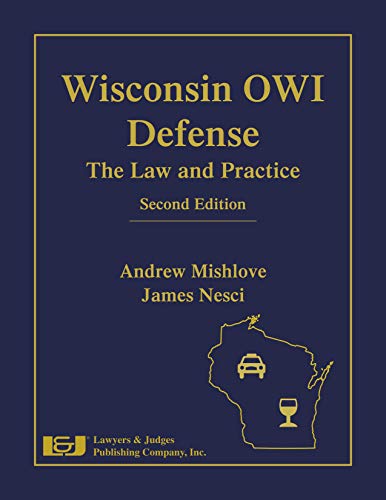
Reference librarians
are available to assist you
In Person: 1st Floor Reference Desk
Phone: 414-288-3837
Email: via web form
Hours: Library Service Hours

Scan QR Code
to View List
on Phone
 Championship Mock Trial : The Guide for Students and Coaches by Hon. David Nelmark; Justin Bernstein
Championship Mock Trial : The Guide for Students and Coaches by Hon. David Nelmark; Justin Bernstein Banking Law Essentials by Karol K. Sparks
Banking Law Essentials by Karol K. Sparks A Practical Guide to Cyber Insurance for Businesses by Lauren D. Godfrey (Editor); Michael Menapace (Editor); Toni Scott Reed (Editor); Larry P. Schiffer (Editor)
A Practical Guide to Cyber Insurance for Businesses by Lauren D. Godfrey (Editor); Michael Menapace (Editor); Toni Scott Reed (Editor); Larry P. Schiffer (Editor) Model Nonprofit Corporation Act : Official Text With Official Comments and Statutory Cross-References by Nonprofit Organizations Committee
Model Nonprofit Corporation Act : Official Text With Official Comments and Statutory Cross-References by Nonprofit Organizations Committee ESG In the Boardroom : A Guidebook for Directors by Katayun I. Jaffari (Editor); Stephen A. Pike (Editor)
ESG In the Boardroom : A Guidebook for Directors by Katayun I. Jaffari (Editor); Stephen A. Pike (Editor) Antitrust Law Developments (Ninth edition) by Ronan P. Harty (Editor); Megan Browdie (Editor); Lisl J. Dunlop (Editor); Gregory P. Luib (Editor); Niall E. Lynch (Editor); David L. Meyer (Editor); Sonia Kuester Pfaffenroth (Editor); Margaret T. Segall (Editor)
Antitrust Law Developments (Ninth edition) by Ronan P. Harty (Editor); Megan Browdie (Editor); Lisl J. Dunlop (Editor); Gregory P. Luib (Editor); Niall E. Lynch (Editor); David L. Meyer (Editor); Sonia Kuester Pfaffenroth (Editor); Margaret T. Segall (Editor) Buying and Selling Art and Collectibles : A Legal Guide by Armen R. Vartian; Laura C. Tiemstra; American Bar Association, Solo, Small Firm and General Practice Division Staff (Contribution by)
Buying and Selling Art and Collectibles : A Legal Guide by Armen R. Vartian; Laura C. Tiemstra; American Bar Association, Solo, Small Firm and General Practice Division Staff (Contribution by) Federal Deception Law : FTC and CFPB Rules, RICO, False Claims Act, Debt Relief, TCPA, Telemarketing, and Parallel State Statutes [Fourth edition] by Jonathan Sheldon; Carolyn Carter ; Andrew Pizor; Elizabeth De Armond; Gary L. Azorsky; Jeanne A. Markey
Federal Deception Law : FTC and CFPB Rules, RICO, False Claims Act, Debt Relief, TCPA, Telemarketing, and Parallel State Statutes [Fourth edition] by Jonathan Sheldon; Carolyn Carter ; Andrew Pizor; Elizabeth De Armond; Gary L. Azorsky; Jeanne A. Markey Beginner's Guide to Nonprofit and Affordable Housing Partnerships by Teresa Santalucia
Beginner's Guide to Nonprofit and Affordable Housing Partnerships by Teresa Santalucia Section 409A Handbook (Third edition) by Regina Olshan (Editor); Erica F. Schohn (Editor)
Section 409A Handbook (Third edition) by Regina Olshan (Editor); Erica F. Schohn (Editor) Michigan Legal Research (Fourth edition) by Cristina D. Lockwood
Michigan Legal Research (Fourth edition) by Cristina D. Lockwood Collections and Bankruptcy in Wisconsin (Third edition) by Kristin K. Beilke [and six others]
Collections and Bankruptcy in Wisconsin (Third edition) by Kristin K. Beilke [and six others] The Wisconsin Fair Dealership Law (Fifth edition) by Brian E. Butler; Jeffrey A. Mandell
The Wisconsin Fair Dealership Law (Fifth edition) by Brian E. Butler; Jeffrey A. Mandell Wisconsin OWI Defense : The Law and Practice (Second edition) by Andrew Mishlove; James Nesci
Wisconsin OWI Defense : The Law and Practice (Second edition) by Andrew Mishlove; James Nesci Intellectual Property in Wisconsin (Third edition) by Kyle M. Costello [and eight others]
Intellectual Property in Wisconsin (Third edition) by Kyle M. Costello [and eight others]